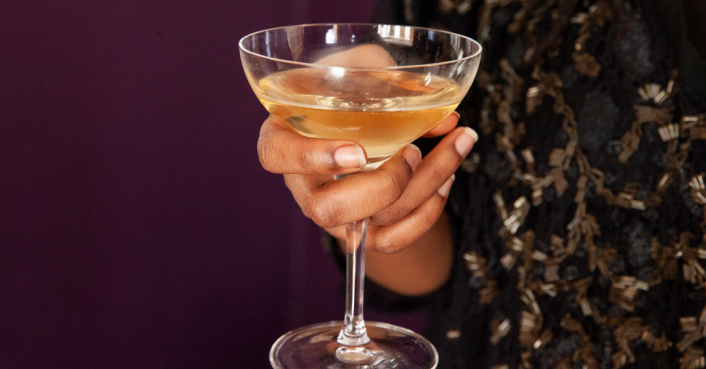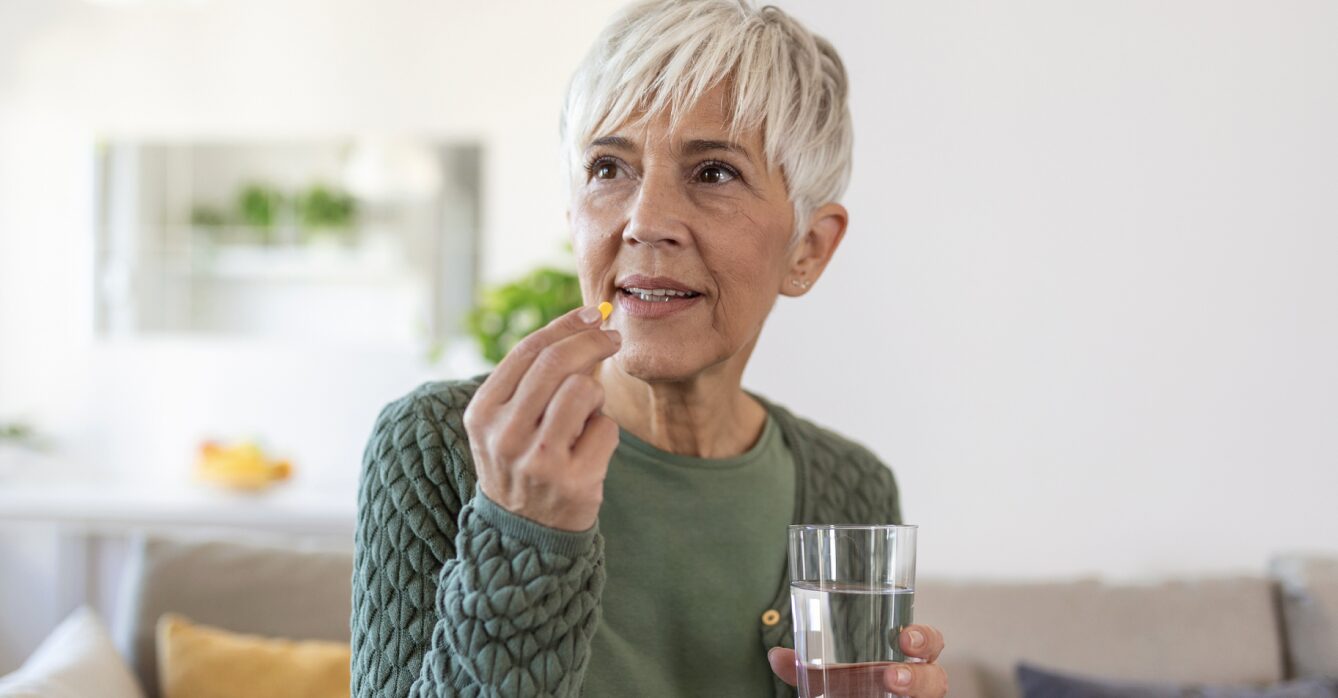Last Updated on September 1, 2023
We’ve all heard the drink more water mantra, and yet, most of us still can’t find a way to make it happen. About 78% of Americans are functioning in a chronic state of dehydration — and most of us aren’t even aware of it (or how much it affects us).
Changing our drinking habits takes time and effort — planning for success and all the obstacles you’ll have to overcome is something you can’t overlook.
So with habit-building science in mind, we’re diving into how you can stay hydrated, long-term.
You’re Probably Dehydrated and You Don’t Know It
Most of us don’t count how much water we drink, so we aren’t really aware of just how little we’re getting — and that dehydration is the source of a lot of our health problems.
A study by the Centers for Disease Control showed that about 44% of American adults drink less than four cups of water per day. But men need about 15.5 cups (3.7 liters) of fluids per day! For women, it’s about 11.5 cups (2.7 liters). Plus, you might need more if you’re living in a hot and humid place or exercise regularly.
Who here thinks they’re drinking 12+ cups of water a day? Because according to research, not even a quarter of us drink more than eight a day.
Learn tips and tricks to reduce your alcoholSneaky Ways Dehydration Affects You
Your body is at least 60% water, with your brain made up of 80% water. Needless to say, not staying hydrated is going to take its toll in many areas. This is especially the case if you drink alcohol since it’s a diuretic (meaning it makes you pee more).
But if you’re always dehydrated, you might not realize it’s the cause of some of your everyday health issues, like having a hard time concentrating or getting brain fog. Just a 1-2% loss impairs your memory and brain function — and you can lose that just by sweating on a hot day!
Here are some of the signs you might be dehydrated:
- Poor memory and attention
- Headaches
- Irritability
- Anxiety
- Fatigue
- Dry skin
- Joint pain
- Constipation
- Digestive issues
- Urinary tract infections
- Kidney stone recurrences
- Slow healing and muscle performance
Constant exhaustion, headaches, and anxiety are all related to your drinking habits (and I’m talking about water here).
Plus, think about how important it is to help your body get rid of waste and toxins (like alcohol) through urine, sweat, and breath. The less water you have, the worse your hangover is going to be.
Get started with mindful drinking5 Hydrating Drinks That Aren’t Water
If you hate water, that’s totally fine — you’ve got options!
1) Fruit-infused drinks: While there’s coconut water and simply adding fruit to your glass you now have all-natural powders to add flavor to your plain water.
2) Fresh-pressed veggie juice: If you hate veggies, blend them with some fruit to cover up their flavor. Investing in a little juice or smoothie blender might help you add extra vitamins and hydration to your day. Some simple examples:
- Tropi-kale: banana, pineapple, kale
- Immune boost: orange, apple, lemon, ginger
- Green goddess: celery, cucumber, green apple, pear
3) Tea and coffee: It’s a myth that they make you dehydrated! Yes, black tea and coffee can act as a diuretic, meaning it makes you pee more, but it still gives you an overall net positive fluid intake. You can even make herbal iced or hot teas to sip on throughout the day.
4) Plant-based milk: Think coconut, oat, or almond milk — they’re all mostly water. You can even make smoothies with them to up your hydrating fruit and antioxidant content. A blend of coconut milk, frozen bananas and berries, and some almond butter is always satisfying.
5) Bone broth: You can make it yourself if you’ve got the time and energy. But if you’re like most of us, you probably just want to buy some ready-made. Luckily, you’ve got a ton of options now, and brands that have individual packets of powder to take on the go, where you just add water.
What kind of drinker are you? Take the quiz.7 Ways To Stay Hydrated
These are some of the easiest, science-backed tips to help you build hydrating habits:
1) Hydrate as Soon as You Wake Up and Before Bed
It’s not that the morning or night is the best time, it’s just that it’s usually the most convenient.
Habit building gets easier when you add a new habit to an already established one. So as soon as you brush your teeth, go to the kitchen and pour yourself a giant glass of water.
You can also add it to your morning coffee habit; if you have coffee first thing in the morning, drink a glass of water right before. Take another glass with you to leave on your desk so you can sip away and finish it once your coffee is done.
Drinking water regularly throughout the day is going to help your overall body function, including your liver. That means you might metabolize alcohol better (especially if you continue to drink water while drinking), lessening the risk of a terrible hangover.
2) Eat Water-Filled Foods
Snacks and meals are a great way to get our water needs met. In general, food gives us about 20% of our fluid intake, but of course, the type of diet you eat changes this number. For example, fruits and vegetables like watermelon and spinach are almost 100% water by weight!
If you’re usually snacking on salty chips or nuts and don’t love fruit or veg, chances are food isn’t helping you that much. But, if you have a serving of fruit with every meal and add extra veggies to lunch and dinner, that’s already five extra hydrating foods added to your day.
Try to always have some hydrating foods before, during, and after you’re done drinking alcohol. Just be sure to set reminders on your phone, put up post-its if you need to, and buy groceries ahead of time (or keep your fridge and freezer stocked with automatic weekly food deliveries) so you always have options.
3) Keep a Reusable Water Bottle With You
There’s a principle called “choice architecture”, which shows that the more accessible something is, the more likely you are to use it.
Just think about a gym in your house versus one a 30-minute drive away — which are you more likely to use?
So whether you go to the office or work from home, a big bottle on your desk in front of you is an easy visual reminder that you should take a sip. The same works for a night of sitting at a friend’s house drinking or out at a pub (there are cute small collapsible ones you can take anywhere, too).
4) Track Non-alcoholic Drinks With Sunnyside
The app isn’t just for alcohol. You can track everything you drink to help you notice your patterns. And as you start noticing just how little water you drink, you might feel motivated to add more.
5) Alternate Your Drinks
For every alcoholic drink, immediately follow it up with a non-alcohol one. It doesn’t have to be plain water but try to avoid soda since the extra sugar might help give you a killer hangover and mess with your hormones and weight. Even diet soda can increase your sugar cravings, cause weight gain, disrupt your gut health, and create cardiovascular problems.
Aim for some sparkling water with lemon or a fun mocktail for something different.
6) Choose Hydrating Alcoholic Drinks
If you’re going to drink alcohol, you can still choose ones that are less likely to dehydrate you and cause hangovers. Light beers and spritzers, for example, usually have less alcohol and more water. Some cocktails, like a mojito (minus a ton of sugar) or a bloody mary also add extra liquids. Check out this article on making a mindful borg if that’s to your liking.
7) Practice Mindful Drinking
Before your night begins, plan how much you want to drink. You can set reminders on your phone to sip mindfully and alternate with non-alcoholic drinks.
Telling friends that you’re starting to drink mindfully can also have a huge impact — they might be super supportive and even join you.
How Sunnyside Can Help
When it comes to changing habits, we all need a little (science-backed) support. Because it’s not as easy as telling yourself you’re going to “drink more water”. You have to plan for it!
Long-term results are only gained through consistent effort, smart habit-building, and emotional support. That’s where Sunnyside comes in. You get daily reminders, a community of people going through the exact same thing as you, and a personalized goal tracker. Plus, you learn how to set SMART goals. So take the 3-minute quiz to see how you could begin.




